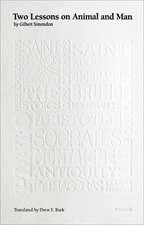Distinction: A Social Critique of the Judgement of Taste
Autor Pierre Bourdieu Traducere de Richard Niceen Limba Engleză Paperback – 12 mar 2010
No judgement of taste is innocent - we are all snobs. Pierre Bourdieu’s Distinction brilliantly illuminates the social pretentions of the middle classes in the modern world, focusing on the tastes and preferences of the French bourgeoisie. First published in 1979, the book is at once a vast ethnography of contemporary France and a dissection of the bourgeois mind.
In the course of everyday life we constantly choose between what we find aesthetically pleasing, and what we consider tacky, merely trendy, or ugly. Taste is not pure. Bourdieu demonstrates that our different aesthetic choices are all distinctions - that is, choices made in opposition to those made by other classes. This fascinating work argues that the social world functions simultaneously as a system of power relations and as a symbolic system in which minute distinctions of taste become the basis for social judgement.
| Toate formatele și edițiile | Preț | Express |
|---|---|---|
| Paperback (1) | 158.29 lei 3-5 săpt. | +36.16 lei 7-13 zile |
| Taylor & Francis – 12 mar 2010 | 158.29 lei 3-5 săpt. | +36.16 lei 7-13 zile |
| Hardback (1) | 905.59 lei 6-8 săpt. | |
| Taylor & Francis – 20 iul 2015 | 905.59 lei 6-8 săpt. |
Preț: 158.29 lei
Nou
30.29€ • 31.62$ • 25.07£
Carte disponibilă
Livrare economică 15-29 martie
Livrare express 01-07 martie pentru 46.15 lei
Specificații
ISBN-10: 0415567882
Pagini: 640
Dimensiuni: 138 x 216 x 33 mm
Greutate: 0.88 kg
Ediția:1
Editura: Taylor & Francis
Colecția Routledge
Locul publicării:Oxford, United Kingdom
Public țintă
General, Postgraduate, and UndergraduateCuprins
Preface to the English-Language Edition Introduction Part 1: A Social Critique of the Judgement of Taste 1. The Aristocracy of Culture Part 2: The Economy of Practices 2. The Social Space and its Transformations 3. The Habitus and the Space of Life-Styles 4. The Dynamics of Fields Part 3: Class Tastes and Life-Styles 5. The Sense of Distinction 6. Cultural Good Will 7. The Choice of the Necessary 8. Culture and Politics Conclusion: Classes and Classifications Postscript: Towards a `Vulgar¿ Critique of `Pure¿ Critiques Appendices Notes Credits Index
Recenzii
'Full of insights of fundamental importance.' Tom Gretton, Oxford Art Journal
'Brilliant insights ... richly informative and insightful.' Barry King, Reviewing Sociology
'In this rich and probing guide to the strategies of pretension in contemporary France, Bourdieu describes how class segments separate from each other by their contrasting attitudes towards art and beauty.' - The Observer
Notă biografică
Pierre Bourdieu (1930ߝ2002) was one of France’s leading sociologists. Champion of the anti-globalization movement, his work spanned a broad range of subjects, from ethnography to art, and education to television.
Textul de pe ultima copertă
This is at once a vast ethnography of contemporary France and a dissection of the bourgeois mind. The subject is the study of culture, and the objective is most ambitious: to provide an answer to the problems raised by Kant's Critique Of Judgment by showing why no judgment of taste is innocent.
Descriere
No judgement of taste is innocent - we are all snobs. Pierre Bourdieu’s Distinction brilliantly illuminates the social pretentions of the middle classes in the modern world, focusing on the tastes and preferences of the French bourgeoisie. First published in 1979, the book is at once a vast ethnography of contemporary France and a dissection of the bourgeois mind.
In the course of everyday life we constantly choose between what we find aesthetically pleasing, and what we consider tacky, merely trendy, or ugly. Taste is not pure. Bourdieu demonstrates that our different aesthetic choices are all distinctions - that is, choices made in opposition to those made by other classes. This fascinating work argues that the social world functions simultaneously as a system of power relations and as a symbolic system in which minute distinctions of taste become the basis for social judgement.

















